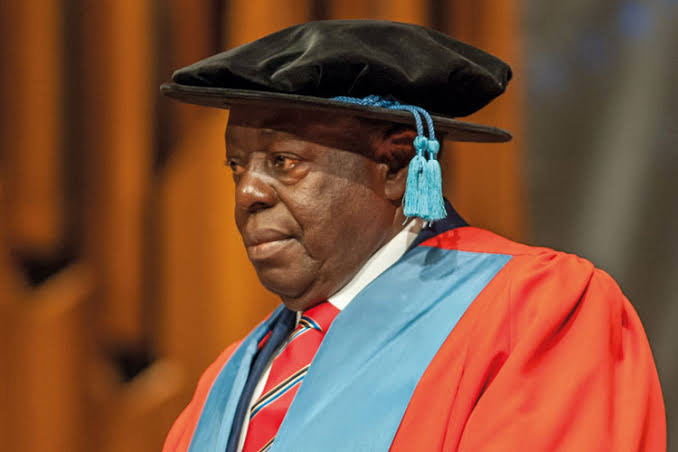
The founder of Afe Babalola University, Ado-Ekiti (ABUAD), Aare Afe Babalola, has called on the federal government to provide funding for research projects in private universities, just as it does for public institutions.
The legal luminary raised his concerns on Thursday during the opening ceremony of the International Hydrogen Summit 2024, themed ‘Catalysing Green Hydrogen Development in Nigeria – The Capacity and Partnership Imperatives.’
Speaking at the summit, held at ABUAD, the elder statesman emphasized that investing in research at private universities would benefit not only Nigeria but humanity as a whole.
Babalola also urged the government to capture private universities in the Students Loan Scheme, stating that all Nigerian students, regardless of whether they attend public or private institutions, should be entitled to benefit from the scheme.
He said, “Recently, the Federal Government established the Students Loan Scheme. Yet, students from private universities are excluded. Are they not Nigerians? What steps have been taken to address this?
“TETFund was also established by the Federal Government, with its funding sourced from private organizations. However, private universities are excluded from accessing these funds. Why? What action has been taken on this issue?
“The government allocates research funds to public universities, yet I am not aware of any university, public or private, that has achieved more in research than ABUAD. Still, ABUAD has not received government support in this area.”
The elder statesman highlighted the importance of the International Hydrogen Summit in advancing green hydrogen development, adding that humanity still has much to do to harness green hydrogen for economic, educational, and healthcare benefits.
He urged attendees to ensure that the resolutions from the summit are implemented, noting that past summits often failed to deliver tangible results.
“Ideas rule the world, but only those who implement their ideas are deemed successful. Ensure the resolutions from this summit are carried out,” he advised.
In his keynote address, the Minister of State for Environment, Iziaq Salako, affirmed that the Federal Government, in line with Nigeria’s Energy Transition Plan (ETP), recognizes the potential of green hydrogen.
He noted that using renewable energy sources like solar and wind, green hydrogen offers Nigeria a significant opportunity to diversify its energy supply and lead the global decarbonization effort.
Salako, represented by the Director-General of the Forestry Research Institute of Nigeria (FRIN), Professor Zaccharia Yaduma, highlighted Nigeria’s substantial solar energy potential, with an average of 11 hours of sunlight per day.
He reiterated President Bola Tinubu’s commitment to unlocking the country’s energy and natural resources for sustainable development, making clean energy a driving force for job creation, poverty reduction, economic growth, and environmental health.
In his address, the Governor of Ekiti State, Biodun Oyebanji described green hydrogen as a major determinant of global sustainability.
Oyebanji, represented by his wife Dr Olayemi Oyebanji explained that Nigeria has the potential to produce green hydrogen at competitive prices as a result of abundant sunlight, wind, and water.
This according to him will secure the energy future, drive economic growth, and create jobs for Nigerians, which will further make the country a top exporter of green hydrogen.
The Director of Hydrogen Research Institute, ABUAD, Professor Adeniran Afolalu said the summit aimed at highlighting green hydrogen’s potential as a sustainable energy source, contributing to the achievements of SDGs and mitigating climate change by decarbonising key sectors such as transportation, power generation, and fertiliser production.
He added that the summit strives to accelerate Nigeria’s energy transition towards a sustainable future by fostering robust partnerships and supporting capacity development.
